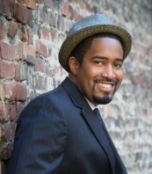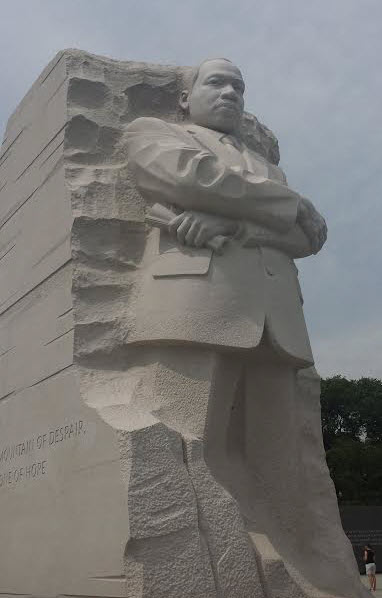A Fight for What is Right

In a recent visit to Washington, D.C. I had the opportunity to visit the Martin Luther King, Jr. Memorial for the first time. It was a beautiful, warm day and as I walked toward the Memorial I couldn’t help but reflect on Dr. King’s journey as a leader.
His life was no cake walk. Dr. King’s belief in equality for all mankind led to his (and many others’) being arrested, publicly humiliated, beaten and mistreated.
In a time where segregation was taught as being “right” in America, he tore down barriers by his leadership and his example. He knew that it was impossible for America to be truly equal as long as its people were being separated by the color of their skin. And through his persistence, hope, and non-violent protests, he showed the nation why it must change. Dr. King once said:
“The ultimate measure of a man is not where he stands in moments of comfort and convenience, but where he stands at times of challenge and controversy.”
The true measure of a leader is determined in moments when he must stand for what is right, regardless of what others may think. In such times, that may even mean standing alone.
 Dr. King strategically chose to not respond to his opposition in violence (though he and his followers were often met with it). Rather, he responded with artful articulation, writing speeches that resonated his message and acting on the words he passionately spoke.
Dr. King strategically chose to not respond to his opposition in violence (though he and his followers were often met with it). Rather, he responded with artful articulation, writing speeches that resonated his message and acting on the words he passionately spoke.
The fastest way to lose the trust of someone is to not follow through on your word. That’s why it’s vital for ethical leader to not just “talk the talk” but to also “walk the walk.” Dr. King gained the trust of millions by following through on his words in numerous ways.
From his work leading the Montgomery Bus Boycott, and the March on Washington where he delivered his iconic “I Have a Dream” speech, to leading thousands of protesters 50 miles from Selma to Montgomery, Alabama, and receiving a Nobel Peace Prize for his efforts, Dr. King was a living example of his convictions.
While King’s impact was definitely felt while he lived, his overall impact after death has been even more monumental. His walk of faith and courage not only led to the desegregation of schools and businesses but has also been a model for non-violent protests across the world.
As we commemorate the life of Dr. Martin Luther King, let’s all examine how we can be better ethical leaders not only in our professions but in our communities.
What issues are crying for your help? As ethical leaders, let’s not just talk about the change that we want to see in America and across the world, but stand daily on the right side of it, just as Dr. King showed us.
As Always… Ethics First!
— Ron Taylor
Student Programs and Development Specialist, NASBA Center for the Public Trust
